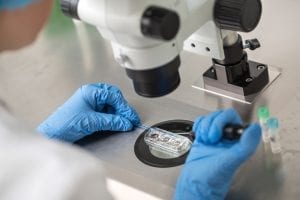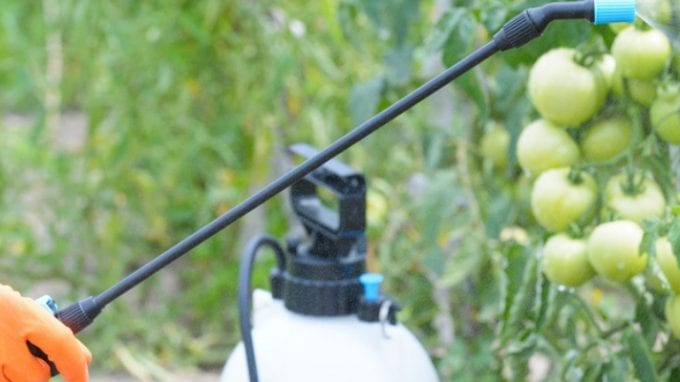Countless studies have indicated that common pesticides are responsible for failed in-vitro fertilization (IVF) procedures.
Produce should always be thoroughly washed before consumption. Failing to wash fruits and vegetables could result in accidentally eating bugs, being exposed to mold or mildew, and getting dirt in your family’s dishes. These are all things that most are fully aware of. Something that most people don’t know, however, is that the consumption of residual levels of widely-used, modern pesticides can result in failed attempts at getting pregnant via in-vitro fertilization.
What is In-Vitro Fertilization?
Also known as IVF, in-vitro fertilization refers to the process by which an egg gets fertilized by a sperm outside of the human body. Natural fertilization takes place in the fallopian tubes after sperm travels down the vaginal canal.
What are Fallopian Tubes?
Found in mammals, fallopian tubes are cylinders that link ovaries with the uterus. Ovaries are where eggs are stored. The uterus is where the development of babies takes place.
Why is In-Vitro Fertilization Performed?

Here are a few reasons why IVF is performed:
- Some women have damaged, blocked, or otherwise malfunctioning fallopian tubes. Doctors who specialize in fertility can extract viable eggs from ovaries better than some women can form eggs out of their uterine tubes naturally.
- Men sometimes have low sperm counts, meaning a unit of ejaculate has fewer sperm than the average healthy male. With fewer sperm comes a decreased likelihood of being able to naturally get a woman pregnant.
- Men also experience issues with sperm motility, or how well sperm can swim. Less-than-motile sperm either dies before it reaches the egg or doesn’t move anywhere following ejaculation.
- Couples sometimes don’t have diagnosable conditions related to fertility. Pairs who haven’t been able to conceive after two years’ worth of consistently trying are good candidates for in-vitro fertilization.
What Steps Does the Procedure Consist of?
Women take certain types of medication for roughly one to two weeks prior to having eggs removed by fertility specialists. The two most common medications used are luteinizing hormone and follicle-stimulating hormone, both of which are naturally found in women.
The egg retrieval procedure involves inserting a specialized ultrasound wand into the vagina near the ovaries. Once the device is close enough, a needle is extended from the wand into each ovary. Eggs are immediately deposited into test tubes.
On the same day as the egg pickup, the man will ejaculate. The semen is mixed with a liquid solution that slows the movement of the sperm down significantly. Under a microscope, doctors select ideal sperm and soon thereafter introduce the sperm to the freshly harvested eggs.
After roughly one week, embryos that are growing properly are transferred into the woman’s uterus. A few weeks after the embryo is transferred inside the woman, a blood test is performed to determine whether the embryo was accepted into pregnancy.
Link Between Pesticides and Pregnancy Problems
Pesticides are linked to both male and female infertility. Harvard University’s Environment and Reproductive Health Study found a link between decreased sperm count and motility and men who were exposed to more pesticides than their pesticide-free counterparts.
Researchers collected a total of 338 semen samples from 155 men in Boston, Massachusetts between 2007 and 2012. The men were asked to track how much and what kinds of fruit and vegetables they ate.
Men who consumed upwards of one-and-a-half servings of both fruits and vegetables that the United States Department of Agriculture deemed as having high levels of pesticides had both fewer sperm and less healthy sperm to the tune of 49 percent lower and 32 percent lower than normal, respectively.
Another Study Found Similar Results in Women
An October 2017 study published in JAMA Internal Medicine found that women who ate upwards of two servings of fruits and vegetables per day and were currently undergoing in-vitro fertilization procedures were about one-quarter less likely to successfully have a child when compared to their produce-averse counterparts.
No particular pesticide or group of pesticides is linked to fertility issues in humans. Put simply, they’re all bad for couples who are trying to conceive.





